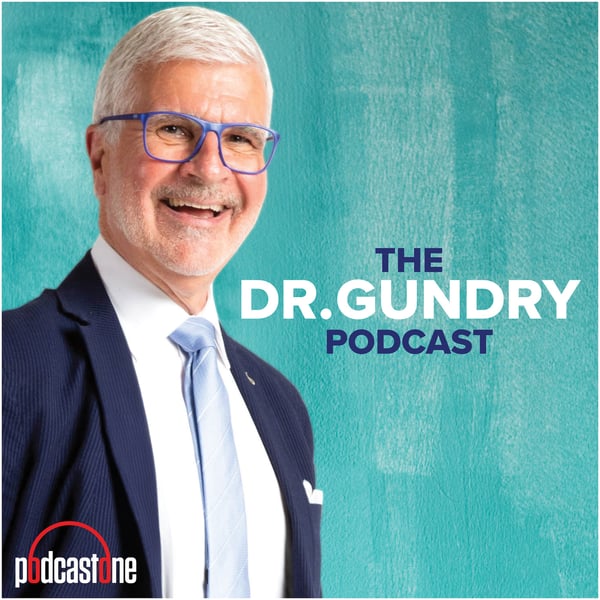Why are THESE people living so long? | Ep190
The Dr. Gundry Podcast
PodcastOne
4.6 • 1.7K Ratings
🗓️ 11 January 2022
⏱️ 45 minutes
🧾️ Download transcript
Summary
Transcript
Click on a timestamp to play from that location
| 0:00.0 | Welcome to the Dr. Gundry Podcast. The weekly podcast where Dr. G gives you the tools you need to boost your health and live your healthiest life. |
| 0:14.0 | Welcome to the Dr. Gundry Podcast. So what if you could unlock all the secrets of the longest living people on the planet? |
| 0:23.0 | Well, I've got news for you. You can. On this episode, I'm going to do a deep dive on Blue Zones, the five geographic reasons. Let's do that again. |
| 0:35.0 | On this episode, I'm going to do a deep dive into the Blue Zones, the five geographic regions that are home to some of the world's oldest but healthiest people, and let you in on some secrets that could help you live the longest, healthiest life possible. |
| 0:50.0 | And as the only nutritionist to spend most of their career living in a blue zone, I can tell you that these secrets are likely not what you are expecting. |
| 1:02.0 | So don't go away. In a moment, I'm going to bust some of the biggest blue zone myths, reveal my number one longevity booster when it comes to diet and share how you can set yourself up to live a long, healthy life, no matter your location. |
| 1:19.0 | I'll also answer some of your most pressing questions on the matter straight from my Instagram. So stay tuned. We'll be right back. |
| 1:31.0 | Okay, topic number one, what is the blue zone? So blue zone is a term that was coined and trademarked by the journalist and buttoner. |
| 1:42.0 | And it describes areas in the world that he visited that had some of the longest lived people per percentage of population and the healthiest, longest lived people in population. |
| 1:59.0 | And so those five places in the world that he described were Sardinia, Italy, hold that thought because it's actually only a part of Sardinia, the islands of Okinawa, Japan, the Nakoya Peninsula in Costa Rica, |
| 2:18.0 | Icaria, Greece, and Lomolinda, California, whereas most of you know I was a professor of heart surgery and pediatrics for most of my career. |
| 2:30.0 | How and when were the blue zones discovered? Well, as I mentioned, Dan was a journalist for National Geographic and he was given the assignment to seek these places out. |
| 2:43.0 | Now interestingly enough, since he first described these five places, there have been additional what I think we should consider blue zones that he did not visit or describe. |
| 2:56.0 | And I've written about these in the longevity paradox and one of them is at the city of Acheroli south of Naples, Italy, and also the Catavans in Papua New Guinea. |
| 3:13.0 | And I've mentioned both of those groups as well and we'll probably come back to talking about that. |
| 3:20.0 | Okay, so let's get to the big question. What are people in the blue zones doing differently? Why are they living such long healthy lives? Well, as you probably imagine, diet plays a huge role. |
| 3:33.0 | But it's not actually as simple as you think. See, the blue zones actually have very wildly different diets from one another. |
| 3:43.0 | So for instance, it is under a general impression that all of these blue zones owe their longevity to eating grains and beans. |
| 3:57.0 | And in fact, that's absolutely positively not the case. Let me give you the example of the Okinawans. |
| 4:06.0 | The only true study of the traditional Okinawan diet was actually done by the U.S. Army in the late 1940s. |
| 4:18.0 | And that was the last time, quite frankly, Okinawans ate their traditional diet. |
| 4:25.0 | The Okinawans subsisted on a purple or blue sweet potato. In fact, 85% of their diet was this purple sweet potato. |
... |
Please login to see the full transcript.
Disclaimer: The podcast and artwork embedded on this page are from PodcastOne, and are the property of its owner and not affiliated with or endorsed by Tapesearch.
Generated transcripts are the property of PodcastOne and are distributed freely under the Fair Use doctrine. Transcripts generated by Tapesearch are not guaranteed to be accurate.
Copyright © Tapesearch 2025.

